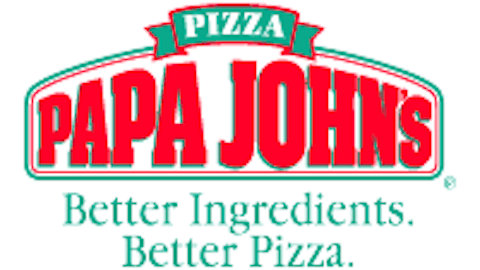
McDonald’s Corporation (NYSE:MCD) is a superior brand, creating value meals for customers and, in the process, delivering for its investors. However, the company reported a lackluster quarter recently with weak guidance for the remaining part of the year, which negatively affected investors and sent the stock down by 3%.
Recent numbers
In the recently reported second quarter, McDonald’s Corporation (NYSE:MCD) earned $1.4 billion, up 4% from $1.35 billion in the same period last year. Its EPS came in at $1.38 per share compared to $1.32 per share in the second quarter of 2012. On earnings, the company failed to meet the analysts’ consensus estimate of $1.40 per share.
Revenue was reported at $7.09 billion, which means the sales remained flat compared to the same period last year. Globally, same-store sales grew 1%, slightly better than estimates, while the American comparable store sales growth failed to meet the consensus estimate of 1.5% and came in at 1%.
Outlook
The company blamed bad macro-economic conditions for its unsatisfactory results and poor guidance. No doubt the economy is taking a toll on McDonald’s Corporation (NYSE:MCD), which is evident from the fact that it will be opening fewer stores around the globe. Earlier, it was expected that McDonald’s Corporation (NYSE:MCD) will open around 1,600 new stores, which now stands revised to 1,500 to 1,550 new stores as the economy is expected to be weak for the remaining part of the year too.
The poor economy has left people with less cash to spend on eating out in restaurants, thus we can also expect sales to fall. A counter argument can be that McDonald’s Corporation (NYSE:MCD) offers value meals, making it a preferred eatery, but high tax rates of around 25% in places such as Europe have been a reason why comparable store sales in Europe has been flat.
It currently faces competition from big shots like KFC, Pizza Hut, and also local start-ups in China. In Japan, it is facing strong competition from Mos Burger and in the Greek market, it is finding difficult to match up local minion Goody’s.
Until now, McDonald’s Corporation (NYSE:MCD) has been successful with a standard global menu, with little adoption of local preference and consumer tastes. At the moment, it needs to think of ways to meet consumer’s tastes and preference in a mixed environment, or it will be losing revenue in the markets that are driven by local preferences. Going forward, these local brands will be a big challenge, as adapting to the changes of new markets won’t be easy.
There are two ways to improve profitability, either to increase prices or to cut down costs, but I believe both are not possible in the case of McDonald’s Corporation (NYSE:MCD). Firstly, the company’s operating margin currently stands at 31.02%, and its net profit margins stand at 19.71% this year. These margins are one of the best in the fast-food industry, and with growing competition, the company cannot hike the price of its menu.
Secondly, the company has managed it costs very well, as it operates in a highly-efficient manner, thus not leaving much scope to cut it further. Moreover, commodities purchase price and certain local government regulated employee expenses such as minimum wages in certain countries are beyond the company’s control. Further, the Affordable Care Act can also play an important role in determining the fate of the restaurant industry once it is in full effect in the U.S.
The Chinese effect
China is a key market for all fast food companies, but it has remained a particularly bad market this year. McDonald’s comparable sales fell 6.1% for the second quarter, due to the negative impact from Avian Influenza, which continues to drive away customers from its stores. Another company that is badly affected by the avian flu is Yum! Brands, Inc. (NYSE:YUM). Further, it faces additional trouble in China because of the chicken scandal at KFC, which affected its revenue and margins.
China is important for both the companies and more for Yum! Brands, Inc. (NYSE:YUM) as half of its revenue comes from the world’s most populous country. As KFC was a renowned and loved brand in China, decline in its sales resulted in a 5% fall in operating margins, and it currently stands at 10.6%.
Keeping faith in past trends, that the business revives in China post a decline due to health concerns, the company is not cutting its growth prospects in the country. However, the rebound will take a few months’ time, and until then, we can expect low margins and profitability for the company.
Look into Burger King
In order to better compete with McDonald’s, Burger King Worldwide Inc (NYSE:BKW) has started relying on franchisees to increase its network globally, as it will reduce the company’s overhead costs significantly. It is also escalating its marketing campaign and presenting reasonable food options for its customers.
Valuation standpoint
McDonald’s is currently trading at a P/E ratio of 18 times while Burger King Worldwide Inc (NYSE:BKW) and Yum! Brands, Inc. (NYSE:YUM) are currently trading at 49 and 23.5 times their earnings, respectively, making them comparatively expensive. However, going forward, Burger King Worldwide Inc (NYSE:BKW) offers maximum growth as it carries a PEG ratio of 1.5 times compared to Yum! Brands, Inc. (NYSE:YUM) 2.09 and McDonald’s 2.04 times.
As the economy continues to remain weak and competitive, I believe McDonald’s will not be offering much value, as it is already trading near its 52 week high. Since it still is a well-run company with a bright long-term view, any fall in price should be seen as a buying opportunity. As for Yum! Brands, Inc. (NYSE:YUM) its performance is immensely skewed towards China, while McDonald’s Corporation (NYSE:MCD) has a more diversified revenue generation capacity. Thus, if Chinese consumers don’t go back to consuming as before, the company will continue to under perform.
The article Happy Meals Are Not Enough to Make Investors Smile originally appeared on Fool.com and is written by tarun bachhawat.
tarun bachhawat has no position in any stocks mentioned. The Motley Fool recommends Burger King Worldwide and McDonald’s. The Motley Fool owns shares of McDonald’s. tarun is a member of The Motley Fool Blog Network — entries represent the personal opinion of the blogger and are not formally edited.
Copyright © 1995 – 2013 The Motley Fool, LLC. All rights reserved. The Motley Fool has a disclosure policy.





